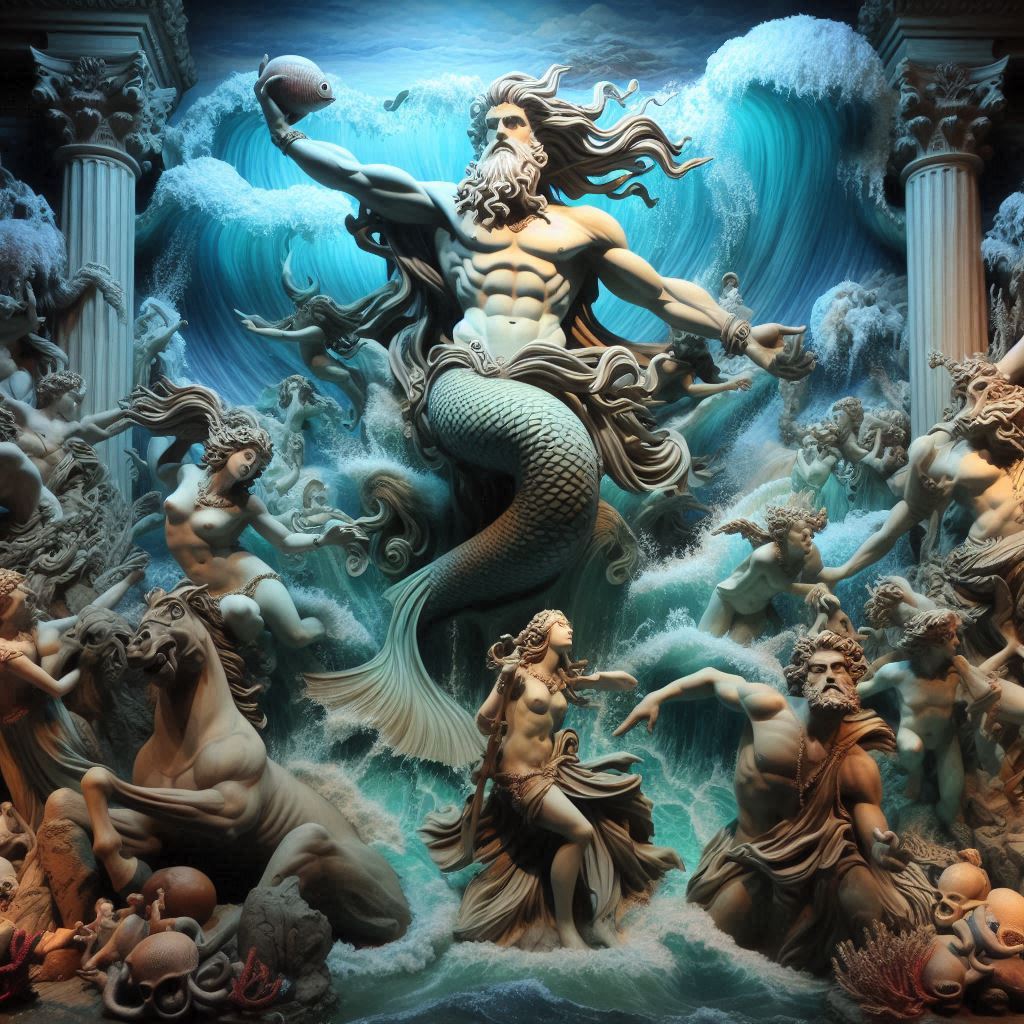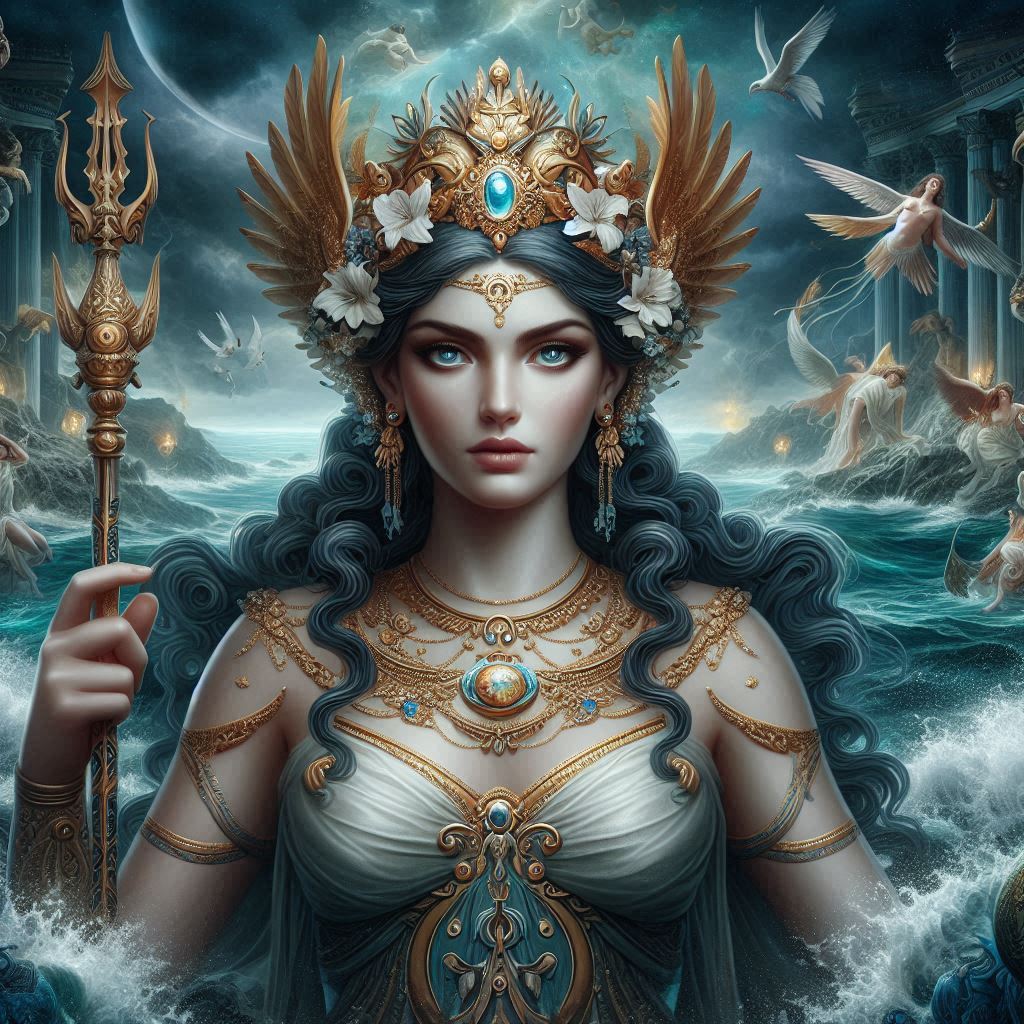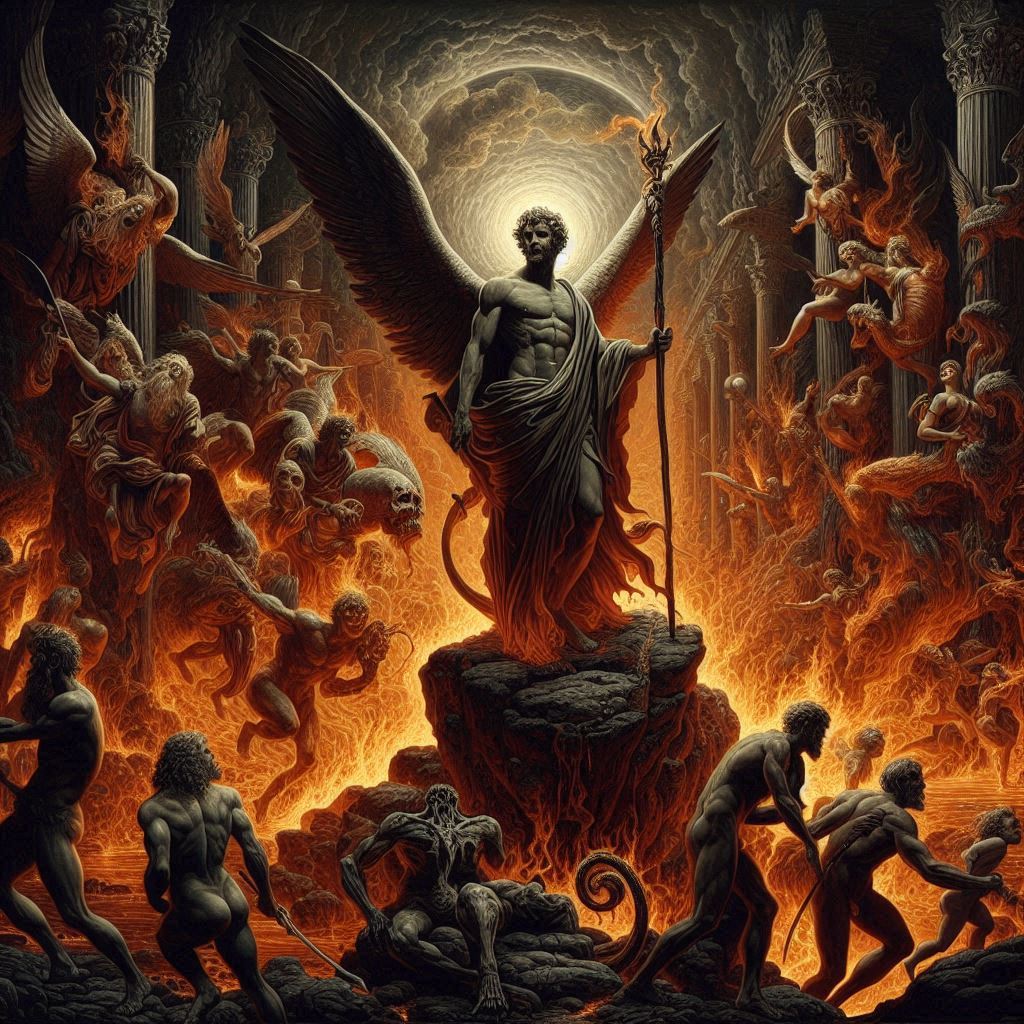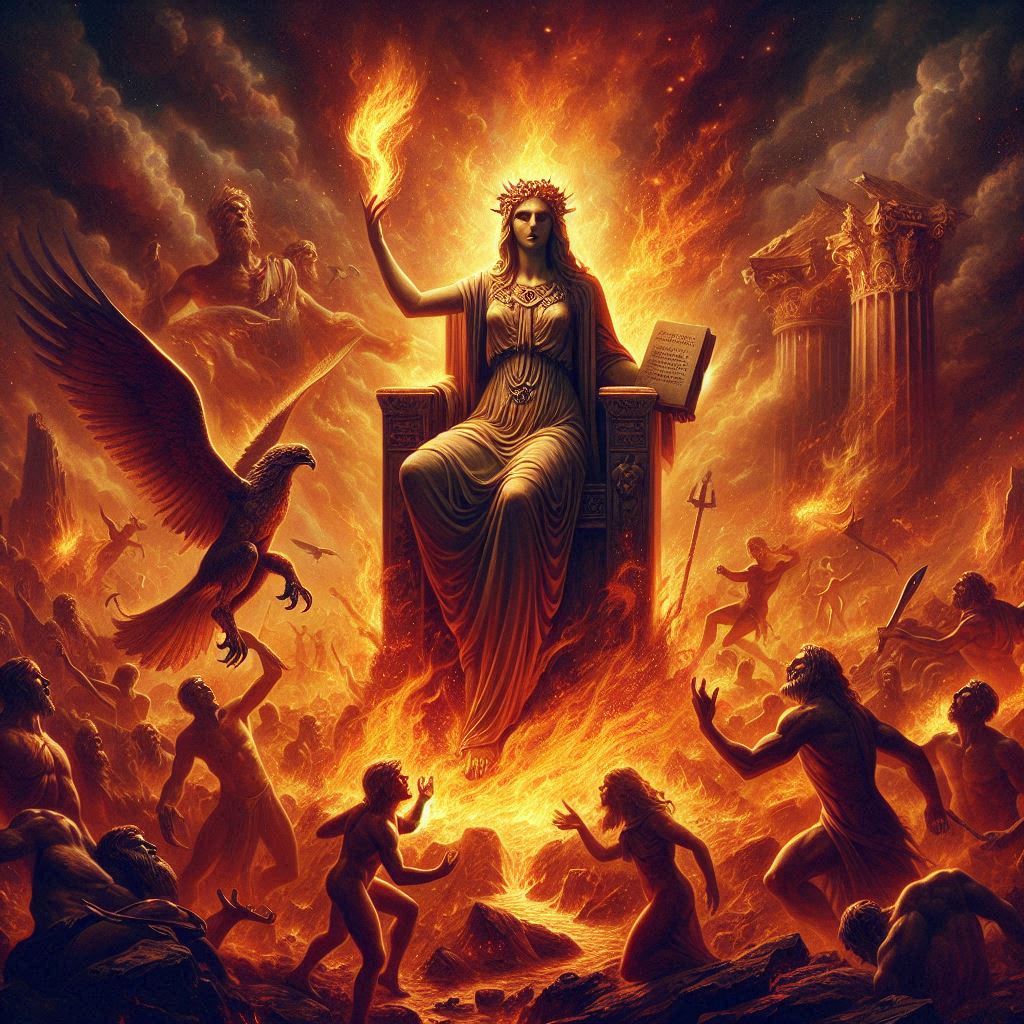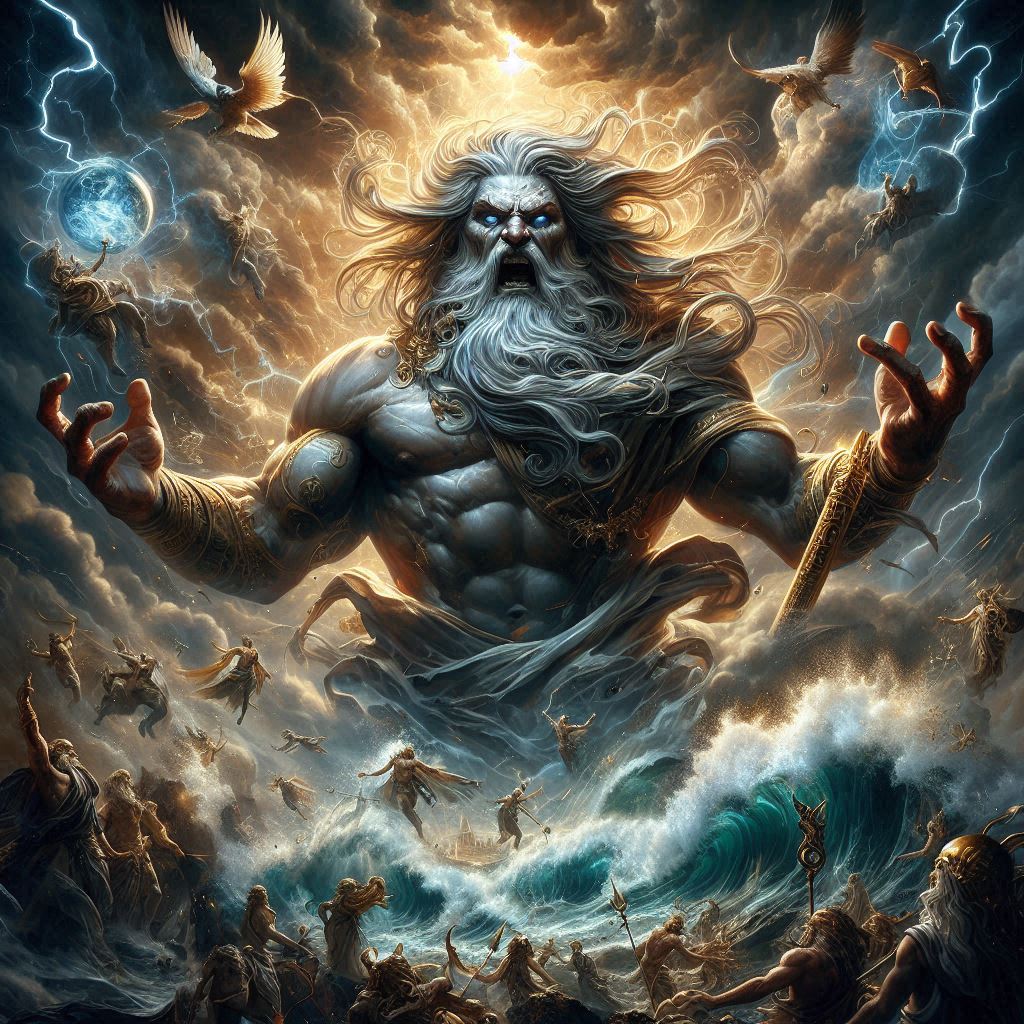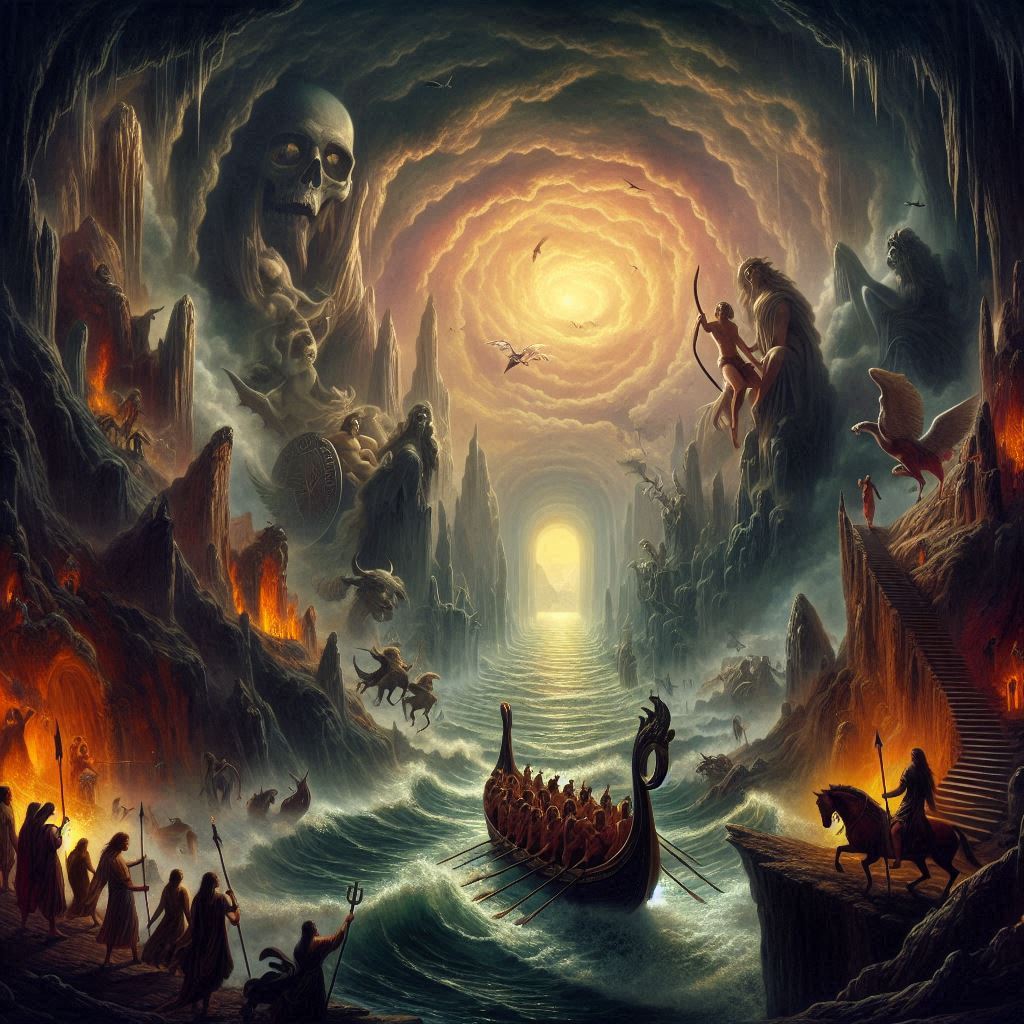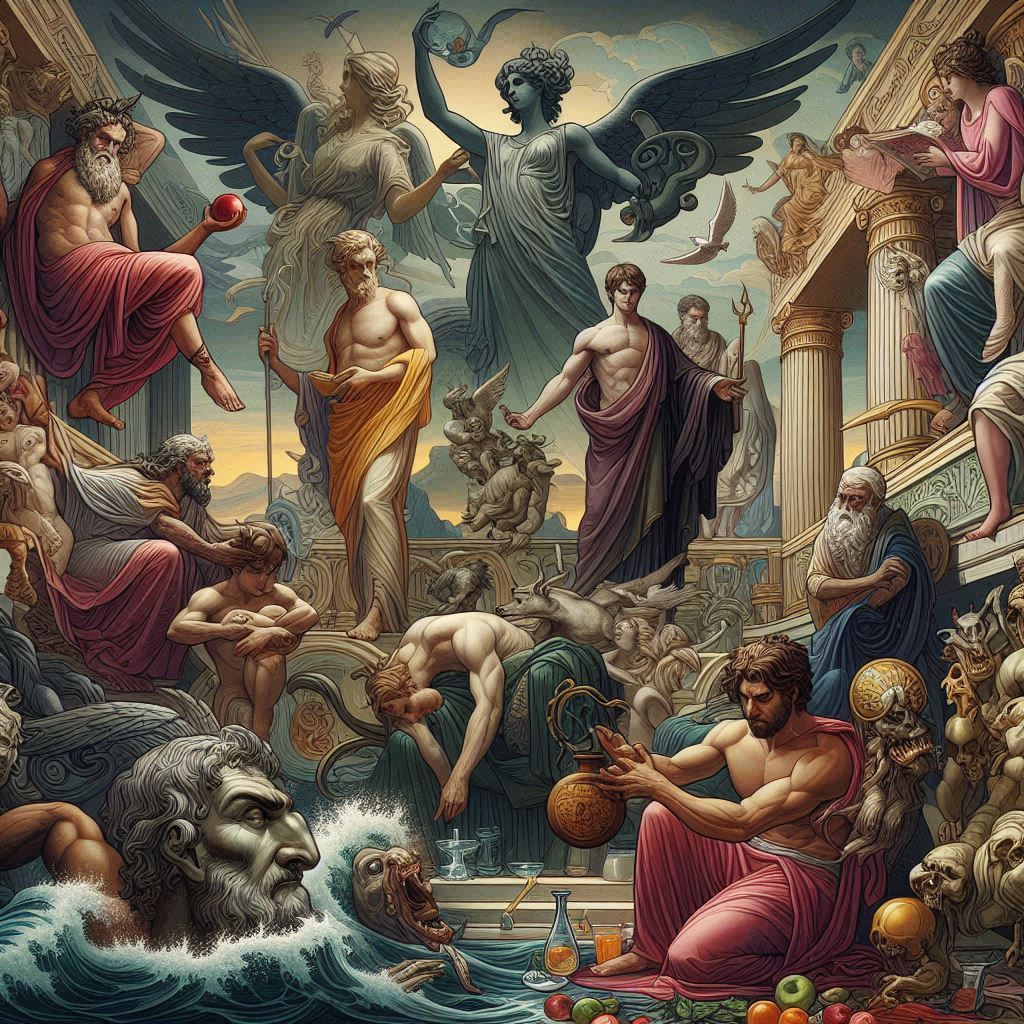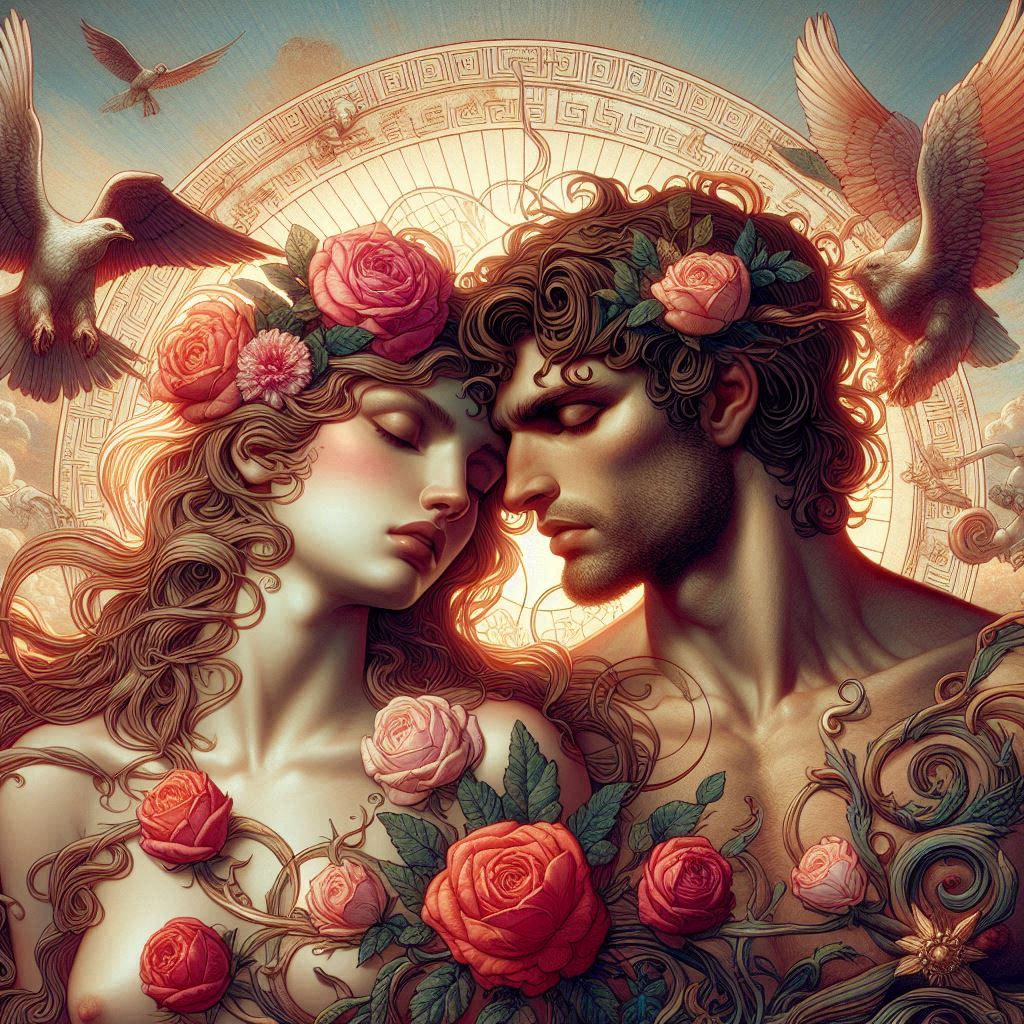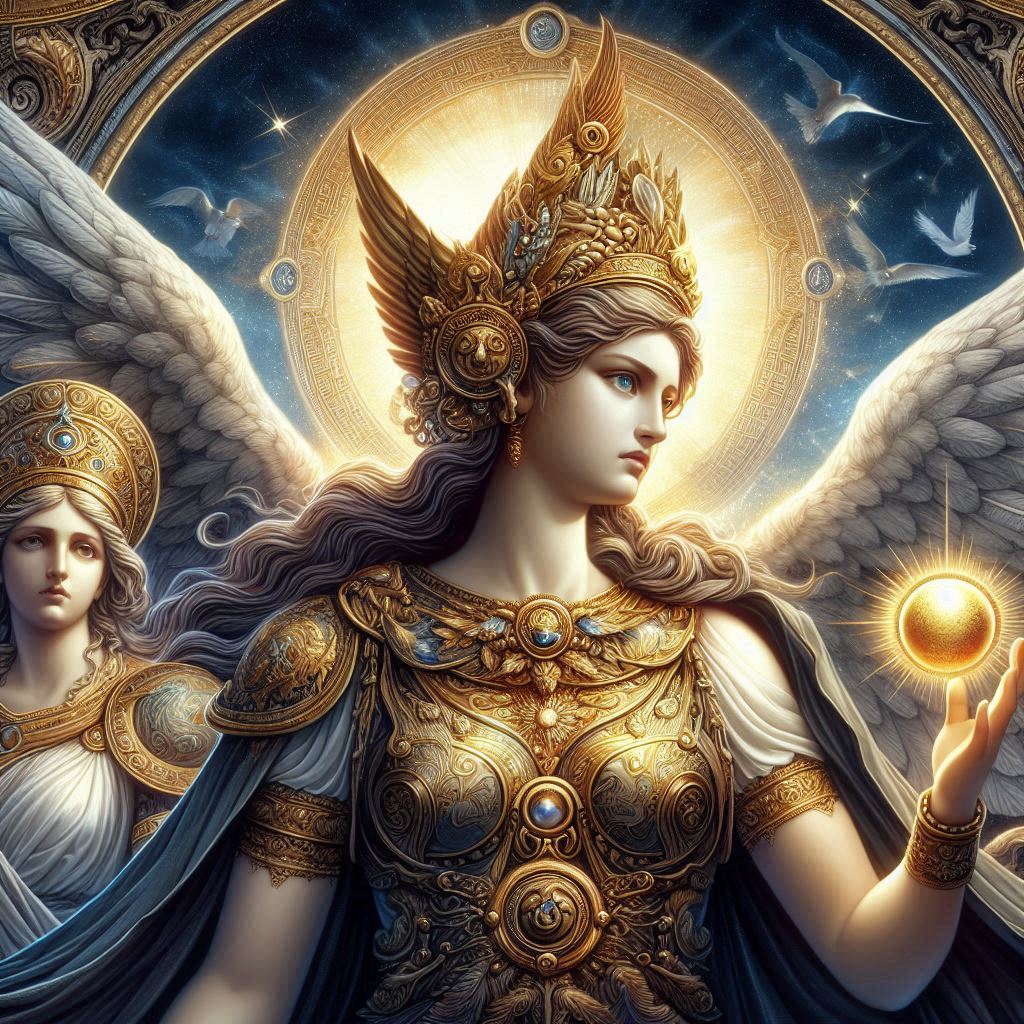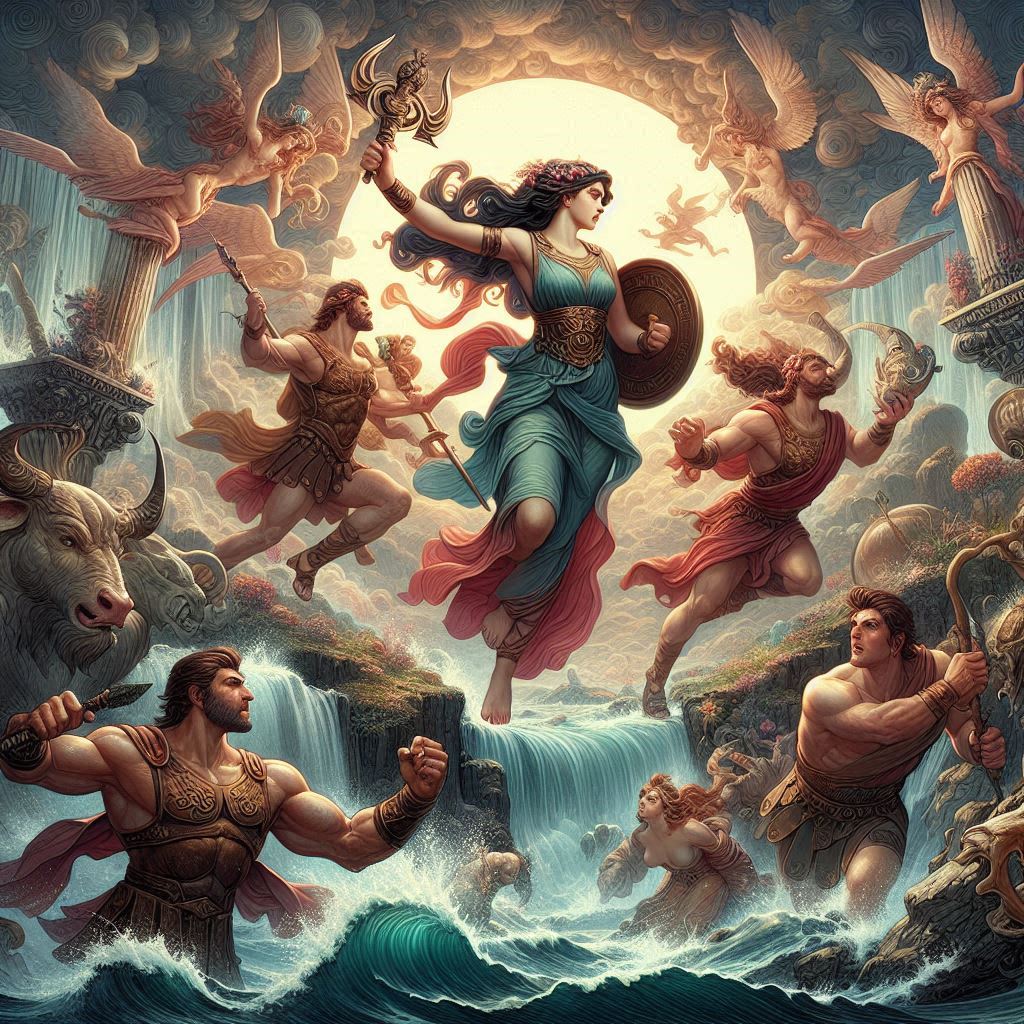Poseidon, the mighty god of the sea, is a central figure in Greek mythology, commanding the oceans, storms, earthquakes, and horses. Known for his fierce temper, strength, and mastery over the watery realm, Poseidon’s myths and legends are woven into the fabric of ancient Greek culture, offering insights into the power and capriciousness of the natural world. From his role as a creator and protector to his conflicts with other gods and mortals, Poseidon’s stories paint a vivid picture of the ocean’s vastness, beauty, and dangers.
One of the most iconic symbols of Poseidon’s domain is the trident, a three-pronged spear that represents his authority over the seas. In mythology, Poseidon is often depicted wielding his trident to create storms, summon earthquakes, and control the movements of the ocean’s creatures. His connection to horses is also significant, as he is often portrayed riding a chariot pulled by majestic sea horses or Hippocamps, mythical creatures with the upper body of a horse and the lower body of a fish.
Poseidon’s origins trace back to the Titanomachy, the epic battle between the Titans and the Olympian gods for control of the cosmos. Poseidon is one of the children of Cronus and Rhea, making him a brother to Zeus, Hades, Hera, Demeter, and Hestia. When Zeus emerges victorious in the Titanomachy and becomes the ruler of the gods, Poseidon is granted dominion over the seas, while Zeus claims the sky and Hades the underworld.
As the god of the sea, Poseidon plays a crucial role in maritime activities, navigation, and the livelihoods of sailors, fishermen, and coastal communities. Sailors often offer prayers and sacrifices to Poseidon for safe voyages, calm seas, and bountiful catches. However, Poseidon’s temperament is unpredictable, and he is known to unleash powerful storms and tempests when angered or offended.
One of Poseidon’s most famous myths involves his contest with Athena for patronage of the city of Athens. According to legend, both Poseidon and Athena vie to become the city’s patron deity by offering a gift to its citizens. Poseidon strikes the ground with his trident, creating a saltwater spring, while Athena plants an olive tree, symbolizing peace, prosperity, and civilization. The citizens of Athens choose Athena’s gift, leading to her becoming the city’s namesake and patroness, while Poseidon harbors resentment and rivalry towards Athens.
Poseidon’s role as a creator is further explored in the myth of the creation of the horse. According to legend, Poseidon creates the first horse by striking the earth with his trident, causing a magnificent steed to emerge from the ground fully formed. This act establishes Poseidon’s association with horses, equestrianism, and the equestrian events held in his honor, such as chariot races and horse shows.
Poseidon’s myths also delve into his interactions with mortals, particularly in his role as a protector or adversary. In the myth of Theseus and the Minotaur, Poseidon plays a pivotal role as the father of the Minotaur, a monstrous creature born from Queen Pasiphaë’s union with a sacred bull. Poseidon’s wrath and curses are often central to the conflicts and challenges faced by heroes and mortals in Greek mythology, reflecting his power and influence over the natural world.
Another famous myth involving Poseidon is his rivalry with Odysseus, the hero of Homer’s epic poem “The Odyssey.” Poseidon harbors a grudge against Odysseus for blinding his son, the Cyclops Polyphemus, during his journey home from the Trojan War. As a result, Poseidon continually hinders Odysseus’s efforts to return to Ithaca, subjecting him to storms, shipwrecks, and trials that prolong his journey for years.
Poseidon’s myths and legends highlight his complex character as a god of both creation and destruction, protection and vengeance. His domain over the seas encompasses both the awe-inspiring beauty and the formidable dangers of the ocean, from serene waves and marine life to tempestuous storms and treacherous waters. Sailors and coastal communities venerate Poseidon as a powerful deity whose favor can bring prosperity and safety, while his wrath can unleash catastrophic disasters and maritime perils.
In art and literature, Poseidon is often depicted as a bearded figure wielding his trident, riding chariots drawn by sea creatures, or surrounded by dolphins and other marine creatures. His symbols, including the trident, the sea horse, and the dolphin, are iconic representations of his influence and authority over the oceanic realm.
The enduring appeal of Poseidon’s myths lies in their exploration of elemental forces, human ambition, and the mysteries of the natural world. Whether as a benevolent deity granting safe passage to sailors or a wrathful god unleashing storms and chaos, Poseidon’s presence in Greek mythology underscores the profound connection between humanity and the vast, unpredictable forces of the sea.
